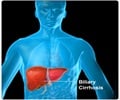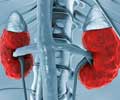A new study identifies the genetic drive to eat salty food, paving the way for eating less salt and control of high blood pressure.

- Gene HSD11B2 is associated with increased salt intake
- Study performed on mice without the gene
- The study mice found to consume three times more salt water when compared to ordinary mice
- Drug development could target the gene for controlling salt intake
- Warm blooded animals require salt for their existence.
- The cerebrospinal fluid is essentially a sac of salt water which circulates throughout the spinal cord as well as the brain.
- Amniotic fluid too contains salt.
- Salt is lost from our body when we sweat as well as when we shed tears.
- Our bones contain 27% of the salt in our body.
- Aids in muscle contraction and relaxation
- Nerve impulse transmission
- Maintenance of fluid balance in the body
Sodium has the capacity of holding onto water which leads to an increase in blood volume. This leads to added pressure on the heart to pump more volume of blood, which can lead to hypertension.
Conditions Caused Due to High Salt Intake
- Congestive heart failure
- Cirrhosis (scarring of the liver)
- Chronic kidney failure
- Stroke
- Diarrhea
- Hypertension
- Normal individual - 2300mg of salt per day
- Individuals older than 51 years of age - 1500mg per day
- People over 50 years of age
- People with diabetes or with elevated blood pressure
- Certain ethnic groups like African Americans
Consumption of Salt in Various Parts of India
- Rural Andhra Pradesh - 42.3g/day
- Tamilnadu - 12g/day
- Delhi - 9g/day
- Chennai - 8.5g/day
The gene for salt intake was first identified by M Bailey and colleagues in a study titled “ Hsd11b2 haplo insufficiency in mice causes salt sensitivity of blood pressure” and published in the Journal Hypertension. (2011 March). In this study, mice which were heterozygous for the gene Hsd11b2 (+/-) i.e. one gene was active while the other was a null mutation. The lowered efficiency of the gene was found to have the following effect on the mice.
- Promoted retention of salt
- Wasting of potassium
- Hypertension
- Change from salt resistance to salt sensitivity
- Increased intake of salt
- No direct relation of the gene with hypertension
- An antagonist that blocks the effect of the gene in the brain of an individual could potentially prevent the need for high salt intake, aiding in control of hypertension.
References:
- http://www.watercure2.org/salt.htm
- http://www.mayoclinic.org/healthy-lifestyle/nutrition-and-healthy-eating/in-depth/sodium/art-20045479
- https://www.ncbi.nlm.nih.gov/pubmed/26951843
- http://hyper.ahajournals.org/content/57/3/515.long
- http://www.hsph.harvard.edu/nutritionsource/salt-and-sodium/sodium-health-risks-and-disease/













